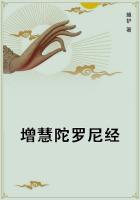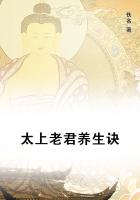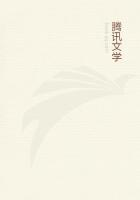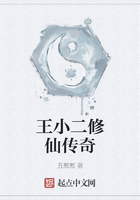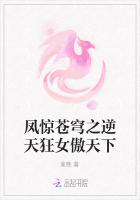A great rage took possession of his soul as he thought of the girl whom he had tried to ruin being after all so much better off than himself, and he vowed that he would work her ill. Therefore that very afternoon he made his way to the palace and asked to see the king.
When he was admitted to his presence, he knelt down and touched the ground with his forehead, and the king bade him stand up and tell wherefore he had come.
'By the kindness of your heart have you been deceived, O king,' said he. 'Your son has married a girl who has lost a hand. Do you know why she had lost it? She was a witch, and has wedded three husbands, and each husband she has put to death with her arts.
Then the people of the town cut off her hand, and turned her into the forest. And what I say is true, for her town is my town also.'
The king listened, and his face grew dark. Unluckily he had a hasty temper, and did not stop to reason, and, instead of sending to the town, and discovering people who knew his daughter-in-law and could have told him how hard she had worked and how poor she had been, he believed all the brother's lying words, and made the queen believe them too. Together they took counsel what they should do, and in the end they decided that they also would put her out of the town. But this did not content the brother.
'Kill her,' he said. 'It is no more than she deserves for daring to marry the king's son. Then she can do no more hurt to anyone.'
'We cannot kill her,' answered they; 'if we did, our son would assuredly kill us. Let us do as the others did, and put her out of the town. And with this the envious brother was forced to be content.
The poor girl loved her husband very much, but just then the baby was more to her than all else in the world, and as long as she had him with her, she did not very much mind anything. So, taking her son on her arm, and hanging a little earthen pot for cooking round her neck, she left her house with its great peacock fans and slaves and seats of ivory, and plunged into the forest.
For a while she walked, not knowing whither she went, then by and bye she grew tired, and sat under a tree to rest and to hush her baby to sleep. Suddenly she raised her eyes, and saw a snake wriggling from under the bushes towards her.
'I am a dead woman,' she said to herself, and stayed quite still, for indeed she was too frightened to move. In another minute the snake had reached her side, and to her surprise he spoke.
'Open your earthen pot, and let me go in. Save me from sun, and Iwill save you from rain,' and she opened the pot, and when the snake had slipped in, she put on the cover. Soon she beheld another snake coming after the other one, and when it had reached her it stopped and said, 'Did you see a small grey snake pass this way just now?'
'Yes,' she answered, 'it was going very quickly.'
'Ah, I must hurry and catch it up,' replied the second snake, and it hastened on.
When it was out of sight, a voice from the pot said:
'Uncover me,' and she lifted the lid, and the little grey snake slid rapidly to the ground.
'I am safe now,' he said. 'But tell me, where are you going?'
'I cannot tell you, for I do not know,' she answered. 'I am just wandering in the wood.'
'Follow me, and let us go home together,' said the snake, and the girl followed his through the forest and along the green paths, till they came to a great lake, where they stopped to rest.
'The sun is hot,' said the snake, 'and you have walked far. Take your baby and bathe in that cool place where the boughs of the tree stretch far over the water.'
'Yes, I will,' answered she, and they went in. The baby splashed and crowed with delight, and then he gave a spring and fell right in, down, down, down, and his mother could not find him, though she searched all among the reeds.
Full of terror, she made her way back to the bank, and called to the snake, 'My baby is gone!--he is drowned, and never shall Isee him again.'
'Go in once more,' said the snake, 'and feel everywhere, even among the trees that have their roots in the water, lest perhaps he may be held fast there.'
Swiftly she went back and felt everywhere with her whole hand, even putting her fingers into the tiniest crannies, where a crab could hardly have taken shelter.
'No, he is not here,' she cried. 'How am I to live without him?'
But the snake took no notice, and only answered, 'Put in your other arm too.'
'What is the use of that?' she asked, 'when it has no hand to feel with?' but all the same she did as she was bid, and in an instant the wounded arm touched something round and soft, lying between two stones in a clump of reeds.
'My baby, my baby!' she shouted, and lifted him up, merry and laughing, and not a bit hurt or frightened.
'Have you found him this time?' asked the snake.
'Yes, oh, yes!' she answered, 'and, why--why--I have got my hand back again!' and from sheer joy she burst into tears.
The snake let her weep for a little while, and then he said--'Now we will journey on to my family, and we will all repay you for the kindness you showed to me.'
'You have done more than enough in giving me back my hand,' replied the girl; but the snake only smiled.
'Be quick, lest the sun should set,' he answered, and began to wriggle along so fast that the girl could hardly follow him.
By and bye they arrived at the house in a tree where the snake lived, when he was not travelling with his father and mother. And he told them all his adventures, and how he had escaped from his enemy. The father and mother snake could not do enough to show their gratitude. They made their guest lie down on a hammock woven of the strong creepers which hung from bough to bough, till she was quite rested after her wanderings, while they watched the baby and gave him milk to drink from the cocoa-nuts which they persuaded their friends the monkeys to crack for them. They even managed to carry small fruit tied up in their tails for the baby's mother, who felt at last that she was safe and at peace.
Not that she forgot her husband, for she often thought of him and longed to show him her son, and in the night she would sometimes lie awake and wonder where he was.
In this manner many weeks passed by.

